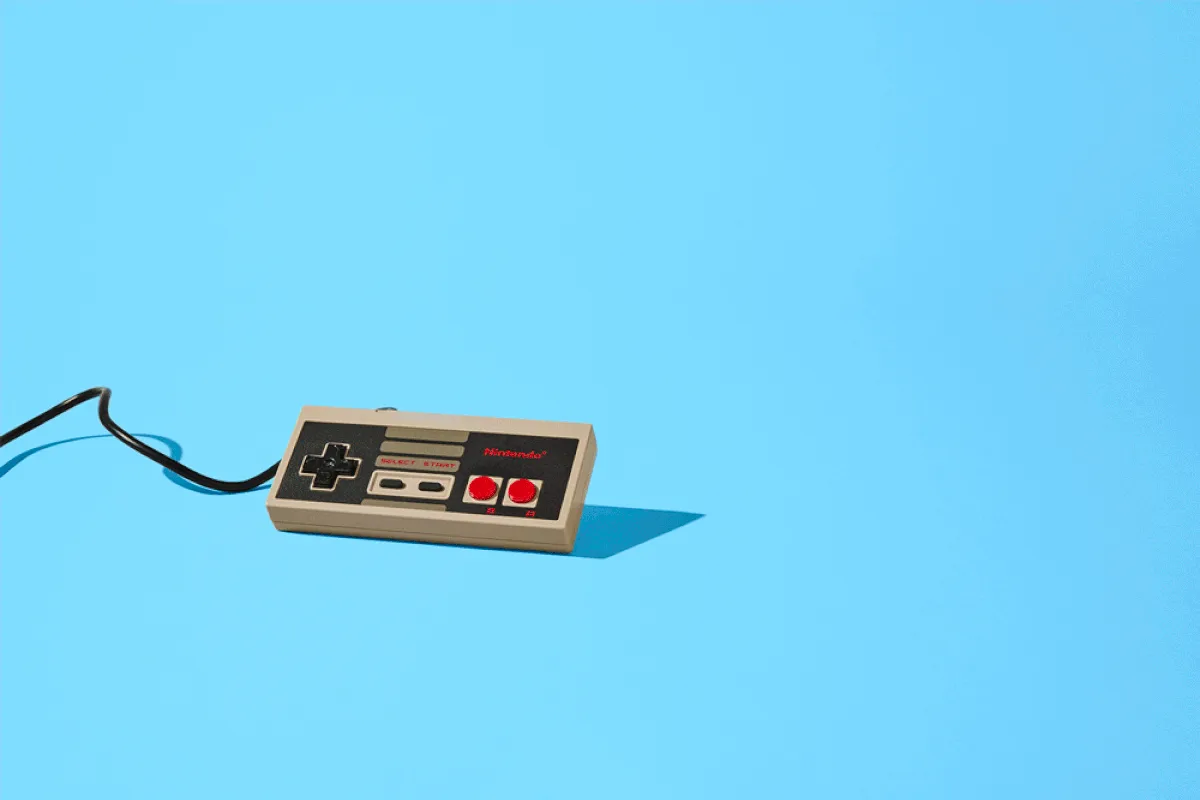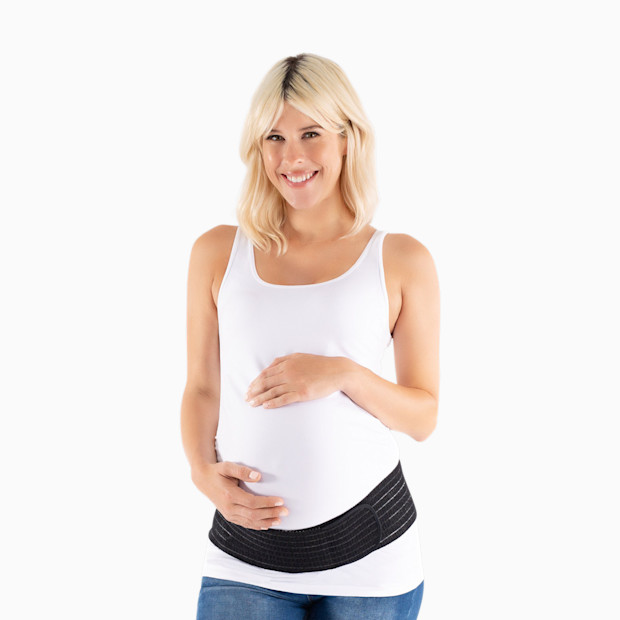
17 Weeks Pregnant
At 17 weeks pregnant, baby is the size of a Nintendo controller and is practicing sucking and swallowing.

In This Article
At 17 weeks pregnant, baby is now the size of a Nintendo controller. Meanwhile, your belly is growing to make room for your rapidly growing baby, who is developing bones and a layer of fat under their skin. You may be experiencing round ligament pain, and a little bump might be starting to form. Here’s more on what to expect from week 17 of pregnancy.
How Many Months Is 17 Weeks Pregnant?
Seventeen weeks pregnant in months is 4 months pregnant, which is part of the second trimester of pregnancy. If you're unclear on your due date, you can use our due date calculator to figure it out.
Your Baby at 17 Weeks
At 17 weeks, your baby is growing rapidly. Bones and sweat glands are forming. The umbilical cord is also developing further. “The cartilage or soft bone in the baby has almost completely hardened and formed actual bone,” says Jackie Martin, Certified Nurse Midwife, DNP at HerMD. “Their bones will continue to harden and fuse into their early years of life.”
And while your baby isn’t actually sweating while in utero, their sweat glands are developing at this point, Martin says.
The umbilical cord has been in place, but now it is getting longer and thickening. “It is working hard to help the baby grow and stay healthy,” Martin says. “It is the lifeline between the mom and baby. It has a vein that carries blood filled with oxygen and nutrients to baby, and two arteries that send all the waste back to the placenta.”
How Big Is a Baby at 17 Weeks?
Baby is approximately 5 inches long from crown to rump and weighs 4.5 ounces. That's about the size of a Nintendo controller.
Week 17 Check-in
Between 16 and 20 weeks, you may find yourself getting a battery of tests.
These may involve screening tests and diagnostic tests. What’s the difference? A screening tells you the risk factor of your baby having a condition, and a diagnostic test tells you whether they actually have it.
Diagnostic tests, like amniocentesis, chorionic villus sampling (CVS) or cordocentesis, have clearer results than some of the tests you may have had in the first trimester. But your provider may have to take your blood or amniotic fluid from the umbilical cord for testing. Some diagnostic tests come with risks, so many parents-to-be opt not to do them unless a screening test suggests there could be an issue, or if there’s family history of a genetic condition. But don't worry: these are routine tests that your provider does regularly.
If you’re curious about these mid-pregnancy tests, here’s further info on what they entail.
17 Weeks Baby Movement
This is the point in your baby’s development when they really start moving. Dr. Lauren Demosthenes, an ob-gyn and Senior Medical Director with Babyscripts, says your baby is becoming more and more active, even doing flips inside you. Chances are you’ll feel that.
But you might not feel the other movements taking place as your child learns to suck and swallow, for instance.
“Babies are practicing sucking and swallowing at this time,”says Martin. “They are preparing for life outside and those first attempts at getting milk from the breast or the bottle. Some babies even begin to suck their thumbs in their mother’s bellies.”
Your baby is also kicking now, whether or not you recognize those sensations.
“Baby’s movements may feel kind of like gas or nausea at first,” Martin says. “This is a time you may start to feel it and some people refer to it as quickening. It sometimes feels like a fluttering sensation.”
Your Body at 17 Weeks of Pregnancy
You might be experiencing what feels like contractions, even though it’s too early for that. We’ll explain. Plus, the joys of morning sickness continue and you might notice you’re developing stretch marks.
17 Weeks Pregnant Symptoms
While you’ve likely moved on from things such as morning sickness, the second trimester is when many other symptoms kick in. You might be experiencing a type of contraction or noticing changes in your skin.
Braxton Hicks Contractions
You may experience something called Braxton Hicks contractions as early as week 17 of pregnancy. It’s your body’s way of preparing for labor. If you have these, you’ll likely experience a tightening sensation across your abdomen, though the feeling will happen irregularly. They are typically not a cause for concern unless they’re happening frequently.
“If anything feels persistent or more regular, this would be something to notify your provider about,” Martin says.
For some women, these contractions are more intense. “They can be very painful and can make you think you are in labor when you are not,” says Dr. Monte Swarup, an ob-gyn and founder of HPD Rx. “You might notice them more at the end of the day.”
Morning sickness
At 17 weeks, morning sickness has usually subsided. Sometimes, nausea can last longer, and if it persists, you may have a chronic condition called hyperemesis gravidarum. If you’re experiencing this condition, there’s help available.
“Morning sickness that continues into the second trimester is something you should mention to your provider,” Martin says. “If it’s severe, it could cause dehydration or other problems.”
Stretch marks
As your skin stretches during pregnancy, you may develop stretch marks. Unfortunately, there’s really nothing you can do to prevent them. Skin type, heredity and weight gain have more to do with stretch marks than any skin cream does. Still, it’s not a bad idea to stay hydrated and lotioned up. The stretch marks may look dark now, but over time, they do fade.
Round ligament pain
Your belly is growing, and you may be feeling something called round ligament pain as your body changes to accommodate baby. It’s a normal part of the second trimester—though sometimes it continues into the third—and it will likely come and go. If you’re experiencing this, remember to take it easy. And a belly band might give you some relief.
Pregnancy Symptoms Coming up in Week 18
Coming up in week 18 of pregnancy, many people experience aches and pains, changes in blood pressure and even dry eyes. We’ll get into more detail on each of these common symptoms and whether you should worry about them.
✅ 17 Weeks Pregnant Checklist
Other expectant parents are a great resource for information and support. Search online to
for expecting moms whose members share a similar due date (Facebook is one place to look), or if you prefer in-person meeting opps, check out local parent centers to see what’s available in your area.
If your doctor has suggested additional screening tests, research their pros and cons to decide what’s right for you.
Keep taking your prenatal vitamins and drinking plenty of water.
Commonly Asked Questions About Week 17 of Pregnancy
Worried about changes in the color and texture of your skin? Don’t be. This is a very common symptom for many women. Similarly, there are tons of aches and pains that come with your baby growing, but they aren’t a bad sign.
What’s with these dark patches of skin?
In week 16 of pregnancy, we mentioned that you may notice dark patches of skin on your face, known as the mask of pregnancy. That continues into week 17 and could spread to other parts of the body.
“Due to the increased estrogen in the body, you will also have an increase in melanin. That might lead to the mask of pregnancy on your face, or the line of pregnancy down your belly,” Martin says. “It’s a thick dark line right down the center of your belly called the linea nigra. This will fade over time after birth.”
Are aches and pains normal?
In a word, yes. Call them growing pains. “You may be getting aches and pains as your bump gets bigger,” Dr. Swarup says. “Your symptoms should be manageable but talk to your doctor if they're not.”
Dr. Demosthenes explains that many aches and pains at this stage have to do with the fact that your uterus is growing and your posture is shifting. “It puts more strain on your back,” she says.
Recommended Products for Week 17 of Pregnancy
At week 17, your baby is rapidly growing and your body is changing quickly, too. Sunscreen can help to prevent discoloration from pregnancy-induced melasma and protect your extra-sensitive skin. And as your belly grows, it’s all about making yourself as comfortable as possible.

Belly Bandit
2-in-1 Bandit
Sources
Monte Swarup, MD, FACOG, board-certified in OB/GYN and founder of HPD Rx
Jackie Martin, Certified Nurse Midwife, Doctorate in Nursing Practice at HerMD
Dr. Lauren Demosthenes is an OBGYN and Senior Medical Director with Babyscripts, the leading remote monitoring platform for managing obstetrics.
This information is provided for educational and entertainment purposes only. We do not accept any responsibility for any liability, loss or risk, personal or otherwise, incurred as a consequence, directly or indirectly, from any information or advice contained here. Babylist may earn compensation from affiliate links in this content. Learn more about how we write Babylist content and the Babylist Health Advisory Board.


